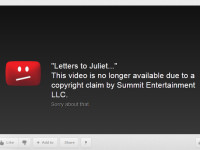Appeared in the Toronto Star on October 19, 2015 as Internet Issues Playing Minor Role in Election As Canadians head to the polls, Internet and digital issues are unlikely to be top-of-mind for many voters. Each party has sprinkled its election platform with digital policies – the NDP emphasizes privacy, […]
 Articles by: Michael Geist
Articles by: Michael Geist
The NDP’s Confusion on Copyright Term: Is Term Extension on their Agenda?
Copyright has not received much attention during the election campaign, but a recent survey by SOCAN raises questions about support for copyright term extension. The issue is particularly confusing in the case of the NDP, since it opposes the TPP (which would require term extension and keep works out of the public domain for decades) but it seems to be willing to entertain the prospect of copyright term extension. SOCAN asked whether the parties would be willing to extend the term of copyright to life of the author (or composer) plus 70 years. The NDP’s response:
The NDP welcomed the government changes in Budget 2015 to extend the term of copyright for performers. We understand there is now discrepancy between performers and songwriters. The NDP is committed to reviewing the Copyright Act in 2017 as the Act requires. We would look to make these key legislative changes in our first year of mandate. These are among the changes we would be looking into.
How the TPP Puts Canadian Privacy at Risk
The Trans Pacific Partnership (TPP), a massive trade agreement that covers nearly 40 per cent of world GDP, wrapped up years of negotiation earlier this month. The TPP immediately emerged as an election issue, with the Conservatives trumpeting the deal as a source of future economic growth, the Liberals adopting a wait-and-see approach (the specific details of the agreement are still not public), and the NDP voicing strong opposition.
The focal point of most TPP discussion in Canada has centered on two sectors: the dairy industry, who would experience a modest increase in competition and receive a staggering multi-billion dollar compensation package, and the automotive parts sector, which would face Asian-based competition as a result of new, lower local content requirements (the industry is also pressing for a compensation package).
My weekly technology law column (Toronto Star version, homepage version) notes that lost in the discussion over imported butter and Japanese-made auto parts are the broader implications of the TPP. New rules on corporate lawsuits could result in more claims by foreign corporations against the Canadian government over national policies or court decisions (pharmaceutical giant Eli Lilly is already suing the government for $500 million over Canadian patent rulings) and an extension in the term of copyright beyond the international standard would lock down the public domain for decades and potentially cost Canadians hundreds of millions of dollars per year.
How the TPP May Put Your Health Care Data at Risk
Appeared in the Toronto Star on October 12, 2015 as How the TPP May Put Your Health Care Data at Risk The Trans Pacific Partnership (TPP), a massive trade agreement that covers nearly 40 per cent of world GDP, wrapped up years of negotiation earlier this month. The TPP immediately […]
Why the TPP Creates a Backdoor Copyright Takedown System in Canada
The 2012 Canadian copyright reform law featured several “made in Canada” provisions that the Conservative government touted as striking a better balance than rules found elsewhere. At the top of the list was the notice-and-notice system for Internet providers. Minister James Moore (then of Canadian Heritage and later Industry) specifically cited the Canadian system as an example of how Canada had “rejected the American style approaches on massive parts of our legislation.” Yet a close reading of the leaked version of the Trans Pacific Partnership intellectual property chapter suggests that Canada may just have agreed to establish a copyright takedown system.
The preservation of the notice-and-notice was a top copyright priority for the Canadian government, so much so that it caved on copyright term extension and implemented digital lock rules that were widely criticized by the Canadian public. However, the negotiators may have failed to keep a notice-and-takedown system out of Canada. Section I of the copyright chapter creates a U.S. style notice-and-takedown system. The Canadian solution was to create a special annex that provides an alternative to the U.S. approach. While the annex was designed specifically for Canada, it would appear that it fails to prevent copyright takedowns from coming to Canada.









